7 Key Advantages of Using CNC Boring Mills for Precision Manufacturing
In the ever-evolving landscape of precision manufacturing, the integration of advanced machinery has become paramount for enhancing efficiency and quality. Among these innovations, the CNC boring mill stands out as a pivotal tool that significantly impacts production processes. Recent industry reports indicate that the global CNC machining market is projected to reach $100 billion by 2025, with a notable increase in the adoption of CNC technologies by manufacturers seeking to improve their operational capabilities. The CNC boring mill, renowned for its ability to produce highly precise and uniform holes in a variety of materials, has emerged as a preferred choice in sectors such as aerospace, automotive, and heavy machinery. Its advantages extend beyond mere accuracy, addressing challenges associated with labor costs, material waste, and turnaround time. In this blog, we will explore seven key advantages of using CNC boring mills for precision manufacturing, highlighting how these machines can drive improved outcomes in today's competitive manufacturing environment.

Optimizing Precision Manufacturing: The Role of CNC Boring Mills
CNC boring mills have transformed the landscape of precision manufacturing by offering unparalleled accuracy and efficiency. According to a report by Grand View Research, the global CNC machine tools market is expected to reach $100 billion by 2028, driven largely by the growing demand for precision engineering in sectors such as aerospace, automotive, and medical industries. CNC boring mills, known for their ability to bore precise holes and create complex geometries, play a pivotal role in harnessing this demand, allowing manufacturers to reduce waste and improve product quality.
The advantages of utilizing CNC boring mills extend beyond mere precision. A study by Research and Markets illustrates that manufacturers using CNC technology can achieve cycle time reductions of up to 25%. This efficiency is crucial in an era where time-to-market can dictate competitiveness. Furthermore, CNC boring mills enhance automation, leading to consistent results and decreased human error. In industries where tolerances are critical, the capacity to repeatedly produce components that meet stringent specifications cannot be overstated. With advancements in technology, CNC boring mills continue to optimize processes, making them indispensable in modern precision manufacturing.
7 Key Advantages of Using CNC Boring Mills for Precision Manufacturing
Enhancing Dimensional Accuracy: How CNC Technology Revolutionizes Boring Processes
CNC boring mills have become indispensable in precision manufacturing, particularly when it comes to enhancing dimensional accuracy. With the integration of advanced CNC technology, manufacturers can achieve remarkable precision in creating complex geometries, which is crucial in industries such as aerospace and energy. Reports indicate that CNC boring mills can reduce tolerance levels to within ±0.005 mm, a significant improvement over traditional machining methods. This level of precision is essential for producing parts that fit perfectly within larger systems, thereby minimizing the need for extensive rework and reducing production costs.
As industries face the challenges of manufacturing large, complex components with freeform shapes, the capabilities of CNC technology become even more critical. According to a recent industry analysis, the demand for effective, high-quality manufacturing processes for oversized components is driving the adoption of robotic solutions integrated with CNC boring mills. These advancements not only streamline manufacturing workflows but also enhance the overall quality of the output. With CNC boring mills, manufacturers can meet the rigorous performance criteria required for high-stakes applications, ultimately revolutionizing how boring processes are executed in precision engineering.
Cost Efficiency in Production: Analyzing the Economic Impact of CNC Boring Mills
CNC boring mills are revolutionizing the manufacturing landscape, particularly in terms of cost efficiency. By automating the boring process, these machines significantly reduce labor costs and minimize human error. This translates to faster production times and higher output without compromising quality. For manufacturers operating on tight budgets, the initial investment in CNC technology can be quickly offset by savings in operational costs and increased production efficiency.
Moreover, the precision offered by CNC boring mills leads to better resource utilization. Parts manufactured with high accuracy reduce material wastage, further driving down costs. This eliminates the need for extensive rework and allows companies to allocate resources effectively. In a competitive market where pricing can be a decisive factor, the economic impact of integrating CNC boring mills into the production process is substantial, enabling businesses to maintain profitability while offering high-quality products.
7 Key Advantages of Using CNC Boring Mills for Precision Manufacturing
| Advantage | Description | Economic Impact | Production Efficiency (%) | Cost Reduction (%) |
|---|---|---|---|---|
| High Precision | CNC boring mills provide exceptional accuracy in creating complex parts. | Reduces waste and rework costs. | 95 | 20 |
| Automated Operations | Minimizes manual intervention, leading to faster production times. | Lower labor costs and increased output. | 90 | 15 |
| Versatility | Can work with a variety of materials and designs. | Reduces the need for multiple machines. | 85 | 10 |
| Increased Safety | Reduces worker exposure to hazardous conditions. | Minimizes costs related to workplace injuries. | N/A | 25 |
| Reduced Setup Time | Quick tool changes and setup adjustments. | Lower downtime leads to higher production output. | 80 | 12 |
| Data-Driven Insights | Integration with software for real-time monitoring and adjustments. | Optimizes resource allocation and minimizes waste. | 90 | 18 |
| Eco-Friendly Manufacturing | Less material waste and energy consumption. | Long-term cost savings on materials and energy. | N/A | 30 |
Versatility in Application: Exploring Industries Benefiting from CNC Boring Mills
 CNC boring mills have revolutionized precision manufacturing across various industries, offering unparalleled versatility that caters to a wide range of applications. From aerospace to automotive, these machines play a crucial role in creating complex components with exacting specifications. Their ability to handle a diverse spectrum of materials and part sizes makes them indispensable in manufacturing settings where precision is paramount. As companies strive to enhance their production capabilities, the integration of CNC boring mills becomes increasingly advantageous, especially in industries like mining and food processing, where robustness and efficiency are vital.
CNC boring mills have revolutionized precision manufacturing across various industries, offering unparalleled versatility that caters to a wide range of applications. From aerospace to automotive, these machines play a crucial role in creating complex components with exacting specifications. Their ability to handle a diverse spectrum of materials and part sizes makes them indispensable in manufacturing settings where precision is paramount. As companies strive to enhance their production capabilities, the integration of CNC boring mills becomes increasingly advantageous, especially in industries like mining and food processing, where robustness and efficiency are vital.
The automation features of CNC boring mills are particularly appealing in today's manufacturing landscape, where labor shortages are a pressing concern. Advanced machines are being designed with integrated contouring heads, enabling them to perform intricate tasks with minimal operator involvement. This not only streamlines the production process but also ensures consistent quality and reduces the likelihood of human error. The capacity to process heavy parts, such as those weighing up to 60,000 pounds, further underscores the capabilities of CNC boring mills, making them a preferred choice for manufacturers aiming to modernize their operations and stay competitive in rapidly evolving markets.
Reducing Lead Times: The Competitive Edge of CNC Boring Mills in Modern Manufacturing
In the fast-paced world of modern manufacturing, reducing lead times is essential for staying competitive. CNC boring mills have emerged as a crucial tool in this pursuit, offering unparalleled efficiency and precision. By automating the boring process, these advanced machines minimize manual intervention, allowing for rapid production cycles. This not only accelerates project completion but also ensures consistent quality, as CNC technology reduces the chances of human error.
Moreover, the ability of CNC boring mills to handle complex geometries and tight tolerances plays a pivotal role in shortening lead times. These machines can quickly switch between different operations, such as drilling and milling, without the need for extensive setup changes. This flexibility allows manufacturers to respond swiftly to customer demands and market fluctuations, enhancing their overall productivity. As a result, businesses utilizing CNC boring mills can deliver high-quality products faster than their competitors, solidifying their position in the industry.

Related Posts
-
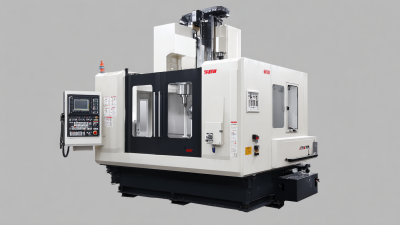
China's Best CNC Vertical Machining Center for Global Buyers Trust in Quality and Innovation
-
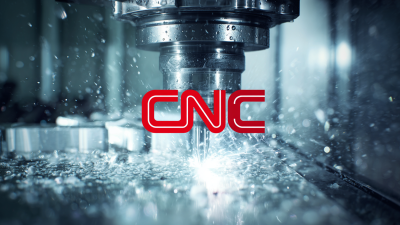
7 Reasons Why the Best 5 Axis CNC Milling Machines Are Essential for Modern Manufacturing
-
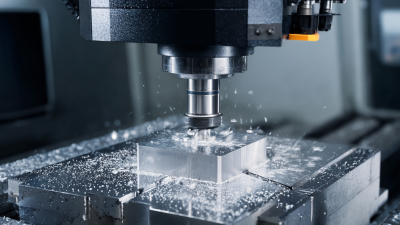
7 Key Features That Make the Best Vertical Machining Centers Stand Out in 2023
-
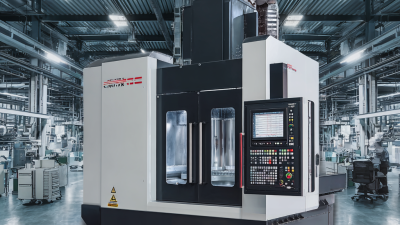
Unveiling the Technical Specifications of the Best Vertical CNC Machines for Global Buyers
-
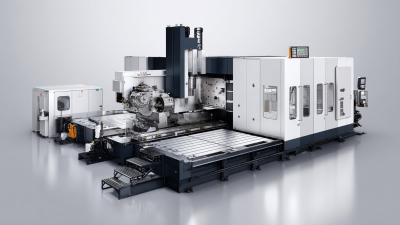
Solutions for Achieving Precision with the Best CNC Horizontal Boring Mill
-
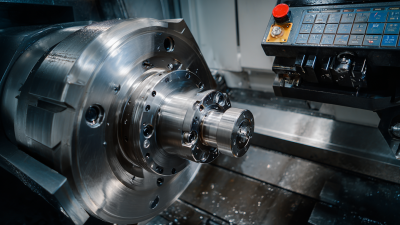
Ultimate Guide to Mastering Lathe CNC Machine Techniques for Precision Engineering
